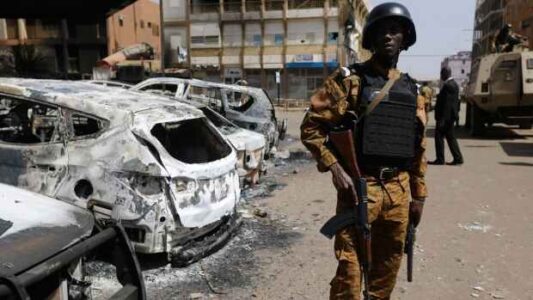
Islamist violence escalates in Burkina Faso making widespread hunger situation worse
Habibou Sore had to pause for breath as she ran barefoot from the approaching gunmen. She was pregnant with twins, due any day.
Soon after arriving at a nearby town in northern Burkina Faso, her feet cut and swollen, Sore gave birth. Then her battle with hunger began.
Attacks by Islamist groups with links to al Qaeda and Islamic State have killed thousands of people this year in Africa’s Sahel region, an arid belt to the south of the Sahara Desert.
The escalating bloodshed has worsened food shortages that threaten millions in a region already hit by climate change, poverty and the COVID-19 pandemic.
Sixteen months after fleeing her village, Sore lives with relatives in the town of Pisilla and eats one small meal a day.
Her twin sons Hassan and Housein each weigh 7 kg (15.5 pounds), the equivalent of a healthy 4-month-old. Their bony legs are covered in sores, their scalps bare in patches. They scream for the milk their mother cannot provide.
“I am worried about them,” Sore said, as she rocked the boys on her lap in a clinic in the town of Kaya, surrounded by paintings showing mothers how to breastfeed and the foods required for a balanced diet. “They are not doing well.”
Over 7 million people face acute hunger in a vast area comprising landlocked Mali, Niger and Burkina Faso, as armed groups cut off access to supplies and farmland, figures from the United Nations’ World Food Programme (WFP) show.
Burkina Faso is deteriorating fastest. Over half a million children under 5 are acutely malnourished, U.N. figures show. WFP said in October that over 10,000 people were “one step short of famine”.
“This year has been worse than anything we have seen in the last decade, a worsening situation that is obviously connected to growing conflicts,” said Christelle Hure, spokeswoman for the Oslo-based Norwegian Refugee Council, which offers shelter for the displaced.
Source: Yahoo News





